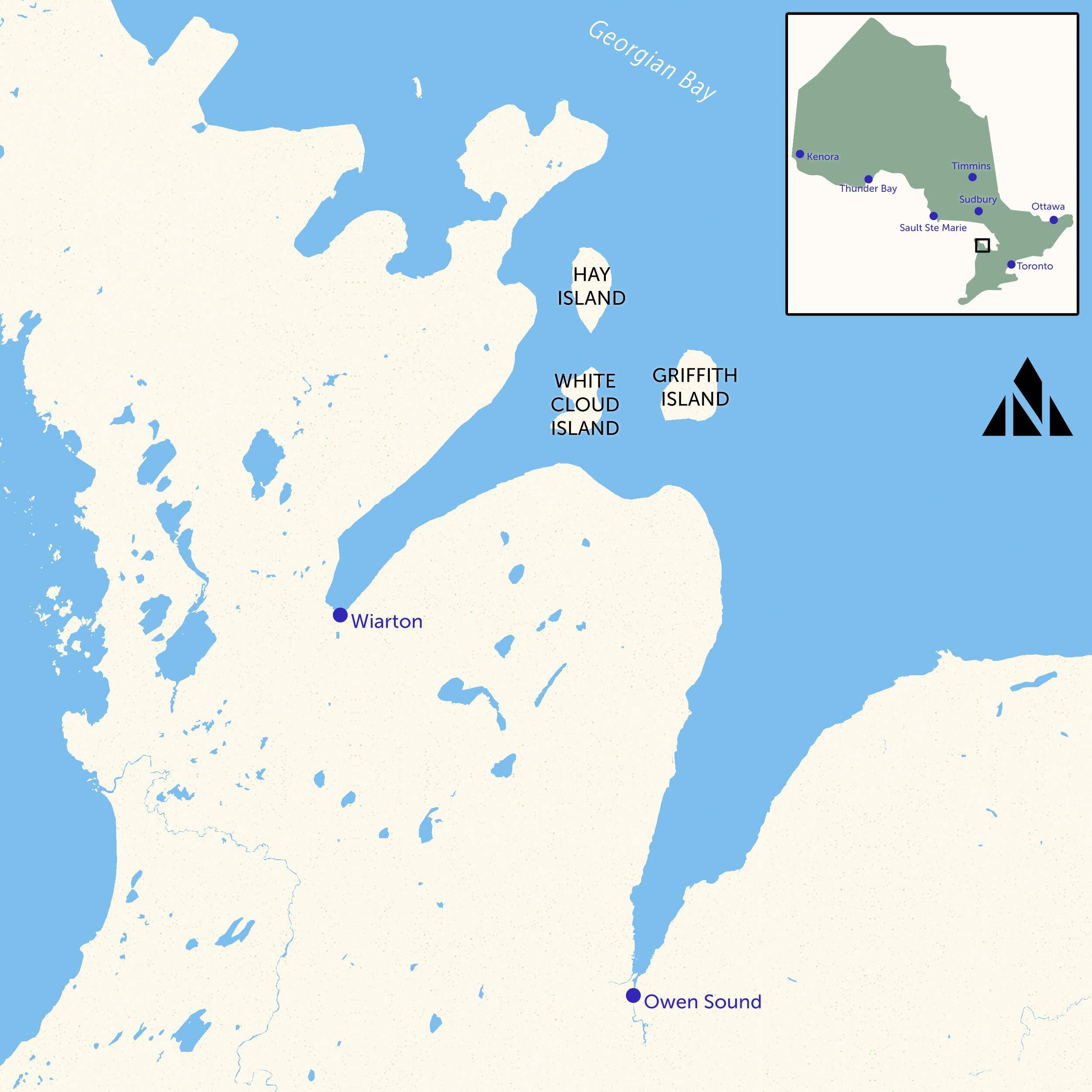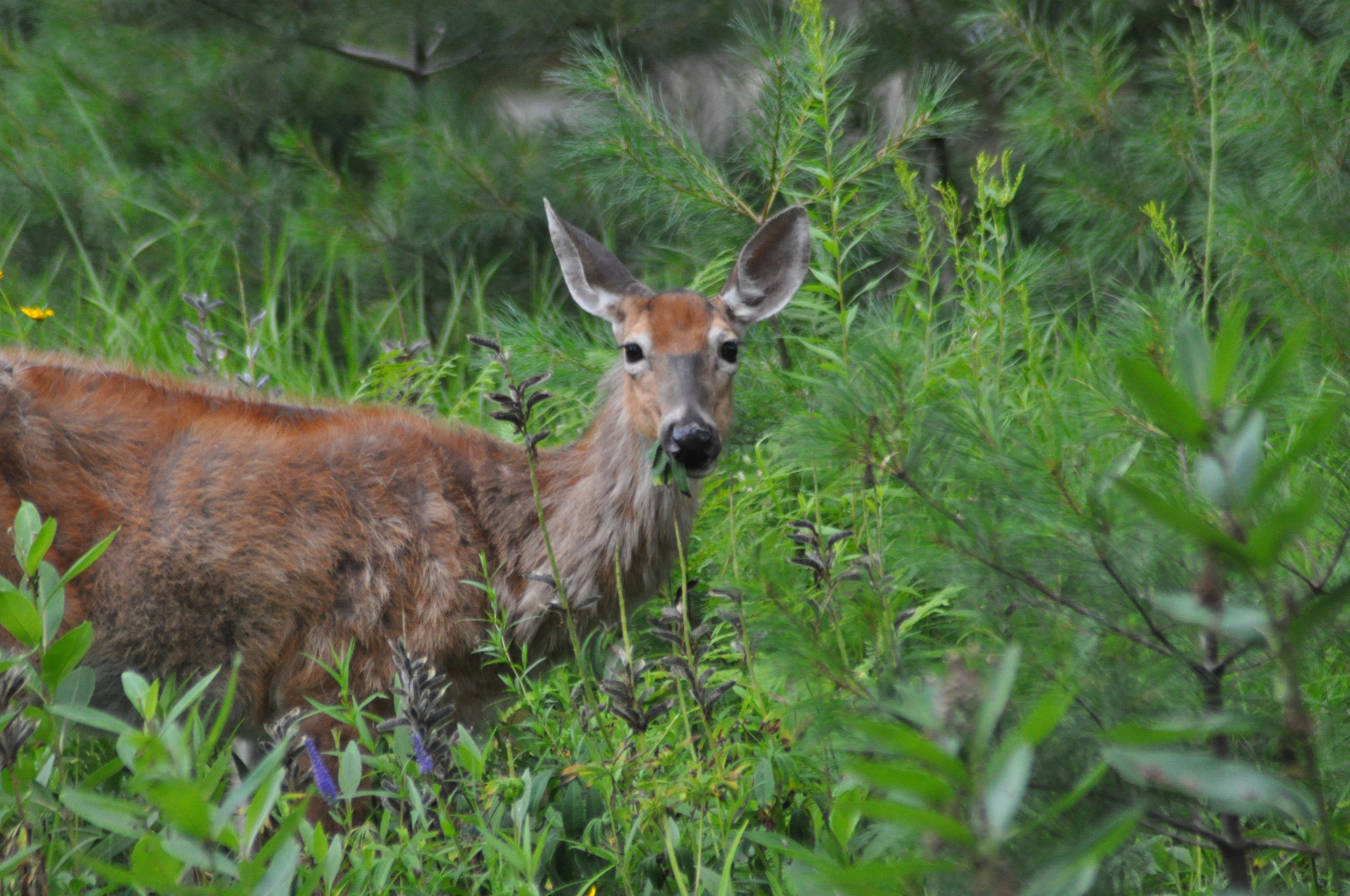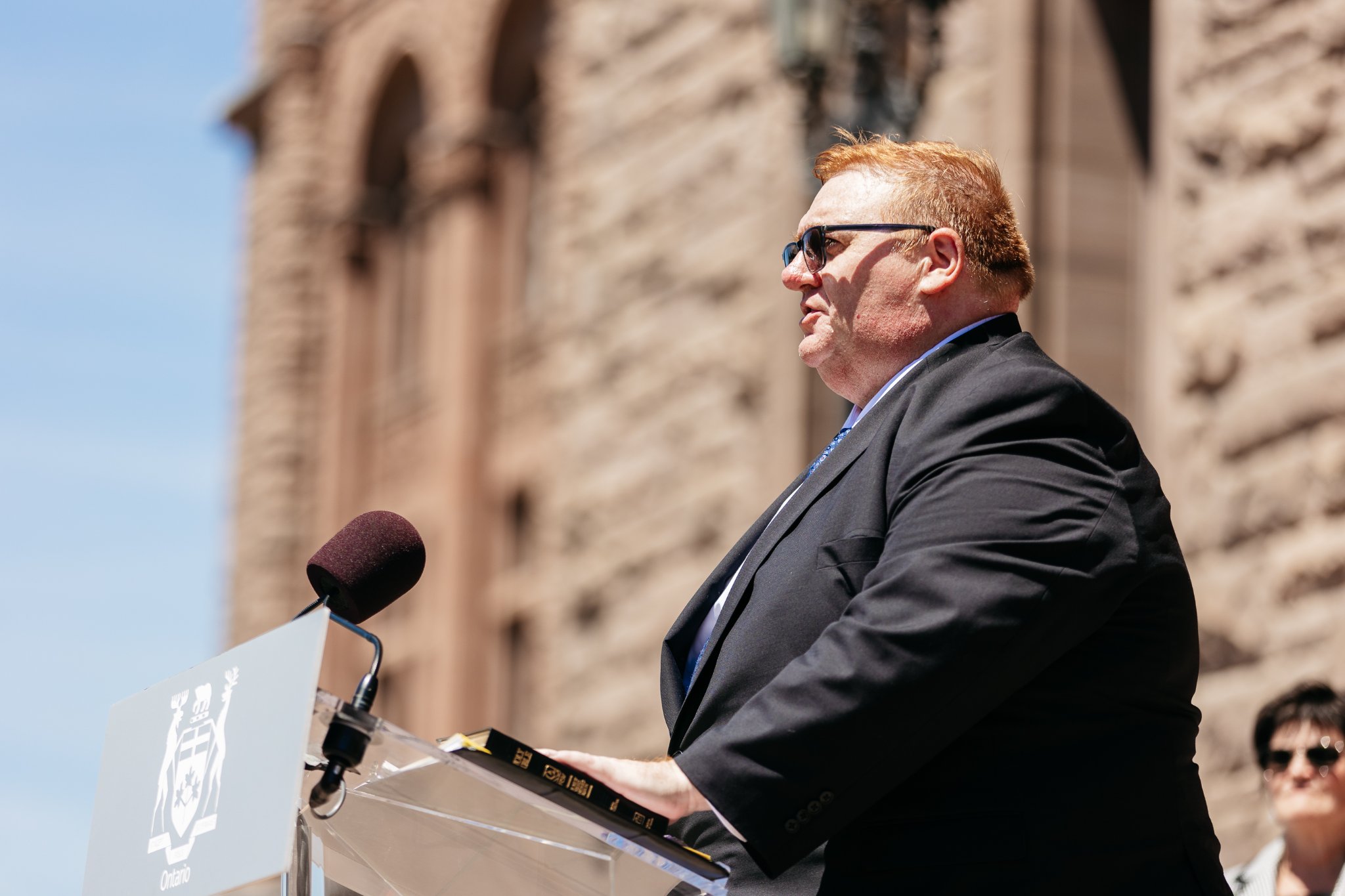
Rocky Mountain coal mine in Alberta takes next step to expansion
In Alberta, a massive open-pit coal mine near Jasper National Park is hoping to expand...
Newly-released internal emails have provided fresh insight into a mystery surrounding the Ontario government’s decision to extend the deer-hunting season at an exclusive club on Georgian Bay.
Until now, the Ontario government avoided explaining what prompted the decision, but the newly released emails reveal it was the club that requested the extension.
Griffith Island and its hunt club are located just north of Owen Sound, Ont., off the shore of the Bruce Peninsula. Though most Ontario hunters get about two weeks to hunt deer with rifles, hunters at the Griffith Island Club, whose members have long been intertwined with Ontario politics and business, had 11 weeks — until last year, when the province gave it an additional two. Hunters there now have a 13-week rifle season, the longest in the province. (Hunters using less powerful weapons like crossbows can typically hunt for longer.)
The province has said the extension would help the club “better manage” deer populations and “increase opportunity for clients and club members.” Over the years, the club’s list of visitors and members has included politicians, corporate executives and big names in professional sports. Its current membership fees aren’t public, but in 1975 the cost to join was $20,000 plus annual dues.
Critics have also raised flags about a lack of transparency about the island’s long deer season: while the dates for Ontario’s hunting seasons in most areas are posted in an online provincial guide, that site contains no such information for Griffith Island, saying only that it has a “unique season.” (The same message also appears for nearby Hay Island, another privately owned island, which has an equally long deer season and was bought by a private company for $14 million in 2021.)
When asked by The Narwhal in 2022, the Ontario government didn’t explain why it had taken an interest in the Griffith Island Club’s deer season. It didn’t answer any questions at all.
The emails, obtained by The Narwhal through freedom of information legislation, date from Oct. 17 and 18, and show staff at Ontario’s Ministry of Natural Resources and Forestry had answers to those questions, but chose not to share them.
One of the emails said the change to Griffith Island’s hunting season was prompted by a January 2020 request from then-Progressive Conservative MPP for the riding that includes Griffith Island, Bill Walker, who made it on behalf of the Griffith Island Club.
In their correspondence, public servants identified this revelation as being for “internal use” only. It was included along with the ministry’s “key messaging” in response to the previous story about Griffith Island published by The Narwhal earlier that week. The email also noted that deer hunting in Ontario generates $328 million in economic activity per year: “Both resident and non-resident deer hunting through an outfitter, guide or club is part of those important expenditures,” it said.

When asked about the emails, the Ministry of Natural Resources and Forestry confirmed in a statement to The Narwhal that it “communicates with the deer hunt managers on Griffith Island periodically and has received requests for season extensions over the years to help manage deer abundance on the island.” The ministry receives similar requests about wildlife management rules “frequently” from a “variety of sources,” the statement said, and the government “carefully considers” public feedback on any changes.
“We recognize the importance of hunting and fishing to Ontario’s economy and tourism industry,” the statement said.
The Griffith Island Club did not respond to a request for comment.
Walker, who isn’t an MPP anymore after deciding not to run again in the 2022 Ontario election, confirmed he made the request. In a phone interview with The Narwhal, he said he got to know the club and its managers over the course of the decade he was an MPP and the years he worked in the community before that. One of his friends is a member, he added, and he visited the island once to do some skeet shooting and understand the place a bit more.
“One of my practices, regardless of the constituents, was to get out and really understand their world,” Walker said. “I tried to get there and be a hands-on person.”

When the club asked him about extending the deer season on Griffith Island, Walker said there were “practical, pragmatic realities” that made him decide it was a good thing. For one, deer are overabundant on the island, but the club doesn’t have the capacity to bring over more hunters — it can only sleep 22 guests at a time. Extending the season would allow the club to bring in more hunters, who would bag more deer and help keep the population down. It could also have economic benefits, Walker added: seasonal staff who live in the area would get another two weeks’ worth of pay, and club members would spend more of their money in the community.
“Some of these people are pretty affluent,” Walker said. “That’s the reality of our world. Why penalize just because everybody can’t have all of the exact same things? I get that there’s maybe an imbalance, but I think at the end of the day, these people also put lots of things back into our community that help the general populace.”
Although hunting is allowed at the club for 13 weeks, the club’s rules mean individual members would only be able to access it for a portion of that season, Walker added. No one member would be able to hunt there for much longer than an average deer season.
Lawrence Kowal — who has hunted for years near Haliburton, Ont., northeast of Toronto, where the rifle season for deer is 13 days — said the additional information still doesn’t explain the ministry’s opacity about Griffith Island. As far as transparency goes, it’s the “bottom of the outhouse,” he said.
“The ministry has purposefully avoided publicizing any of this,” he said. “For what reason?”

Griffith Island has been a 2,300 acre playground for wealthy people for decades. The club advertises its private chef, who feeds guests gourmet meals, and a landing strip for chartered aircraft to land.
The island’s more relaxed hunting seasons have also attracted media scrutiny for decades — especially since the 1970s, when the Griffith Island Club was founded by a group that included former Ontario premier John Robarts. In those days, with several cabinet ministers on the club’s membership list, deer seasons were a few days on the mainland but two months on Griffith Island.
In the emails obtained by The Narwhal, the Ministry of Natural Resources and Forestry said there is an ecological basis for the longer rifle season on Griffith Island and neighbouring Hay Island.
“These islands lack predator species of deer found on the mainland and have limited deer movement on or off the islands, so that long ‘rifle seasons’ increase the ability to manage deer numbers,” one email said.
The email did not explain why, then, the longer rifle season applies to Griffith and Hay Islands but not their neighbour in the same bay, White Cloud Island. One anonymized comment on the province’s online proposal to add two weeks to the season on Griffith and Hay Islands complained about the difference: on White Cloud, landowners are “not huge corporations but private people who own land on a private island,” it said, accusing the government of “catering to big money.”

There’s also a flaw at play in the province’s logic, Kowal said. There may be too many deer on Griffith Island, he said, but it could be a self-created issue: the club’s head gamekeeper is responsible for maintaining deer feed plots, which are commonly used to supply the animals with extra food, and “lawful predator control activities,” a 2022 job posting for the role said.
“Population control is not solely on the amount of deer that they take out,” Kowal said. “They’re feeding them.”
The club did not respond to questions about whether its deer population could be better controlled by adjusting feed plots and predator control.
Get the inside scoop on The Narwhal’s environment and climate reporting by signing up for our free newsletter. A $335 million funding commitment to fund...
Continue reading
In Alberta, a massive open-pit coal mine near Jasper National Park is hoping to expand...

A trade war could help remake B.C.’s food system, but will family farmers be left...

First Nations are leading efforts to make sure lake sturgeon can find a home in...
